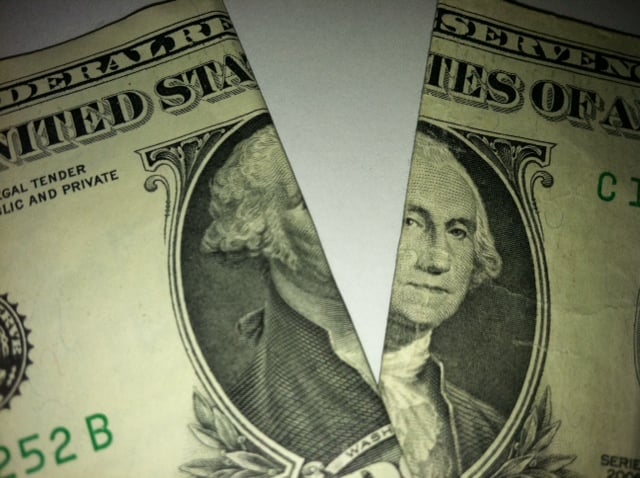Banking, finance, and taxes
The Argument For & Against Decimalization Returning In 2013
Published:
Last Updated:
 If you have been trading or investing in stocks for more than a decade, one of the greatest changes that has taken place through time is the move from fractional pricing of shares to decimalization. Many investors prefer the new system because it can limit the bid/ask spread down to a single penny (or less for institutions). Back in the day stocks were mostly quotes in “eighths” (1/8, 1/4, 3/8, 1/2, etc.).
If you have been trading or investing in stocks for more than a decade, one of the greatest changes that has taken place through time is the move from fractional pricing of shares to decimalization. Many investors prefer the new system because it can limit the bid/ask spread down to a single penny (or less for institutions). Back in the day stocks were mostly quotes in “eighths” (1/8, 1/4, 3/8, 1/2, etc.).
Not all market participants like decimalization. It has acted as a key income killer for market makers. The flip-side is that Joe Public is no longer 12.5-cents out of the money every time he buys a stock. We would have assumed that this argument about the future of decimalization was dead and buried. Apparently, Tom Clancy’s line of “Assumption is the mother of all F*&^ups” is true in this case.
News came out this week that the Securities and Exchange Commission staff will host a roundtable early in 2013 (Feb. 5) to discuss the impact of decimal-based stock trading on small and mid-sized companies, market professionals, investors, and U.S. securities markets.
In the notice the SEC said that various parties have raised concerns that the adoption of decimalization may be detrimental to small and mid-sized companies. The Jumpstart Our Business Startups Act (or JOBS Act) was enacted in April and it directed the SEC to conduct a study of the effects of decimalization on initial public offerings and on small-cap and mid-cap companies.
This does not imply that an end of decimalization is on the horizon. The SEC’s notice says that the roundtable is meant to discuss what changes, or if any changes, should be considered. What this does imply though is that there could be a push for decimalization or fraction pricing changes in new companies or in smaller companies.
The Report to Congress on Decimalization prepared earlier this year noted, “Prior to the IPO Task Force Report, in a paper released in June 2010, Grant Thornton also concluded that decimalization has had a negative effect on the equity markets, and characterized decimalization as a “death star.”12 The paper argues that decimalization almost eliminated the economic incentive to trade in small capitalization stocks, taking “96 percent of the economics from the trading spread of most small cap stocks – from $0.25 per share to $0.01 per share.” The paper also asserts that decimalization, combined with other innovations such as an increase in online brokerage, was significantly more damaging to the IPO market than oft-criticized provisions from the Sarbanes-Oxley Act of 2002.”
Imagine how confusing it would be if the really large companies were quoted in fractions and the rest of the companies were in pennies. Or what if the SEC determined that the smaller companies should be in fraction prices again?
Regulations and changes of this magnitude are difficult to implement and they often take considerable time to get used to. Sometimes changing back to the way things were before is too much trouble.
If you want to consider how hard change is, consider the metric system. Not many Americans can use the metric system and cannot translate pounds from kilos and miles from kilometers. The U.S. has even passed laws to get the country on the metric system yet airlines in America do not have “Frequent Flyer Kilometer” plans. If you go sell scrap gold or silver it is measured in grams, but go ask someone the price of gold and they will tell you that gold is close to $1,700 per ounce.
Decimalization has been around for more than a decade now. Even if a roundtable came out in favor of reverting back to fraction pricing it may be too late to go back.
JON C. OGG
Ever wanted an extra set of eyes on an investment you’re considering? Now you can speak with up to 3 financial experts in your area for FREE. By simply
clicking here you can begin to match with financial professionals who can help guide you through the financial decisions you’re making. And the best part? The first conversation with them is free.
Click here to match with up to 3 financial pros who would be excited to help you make financial decisions.
Thank you for reading! Have some feedback for us?
Contact the 24/7 Wall St. editorial team.